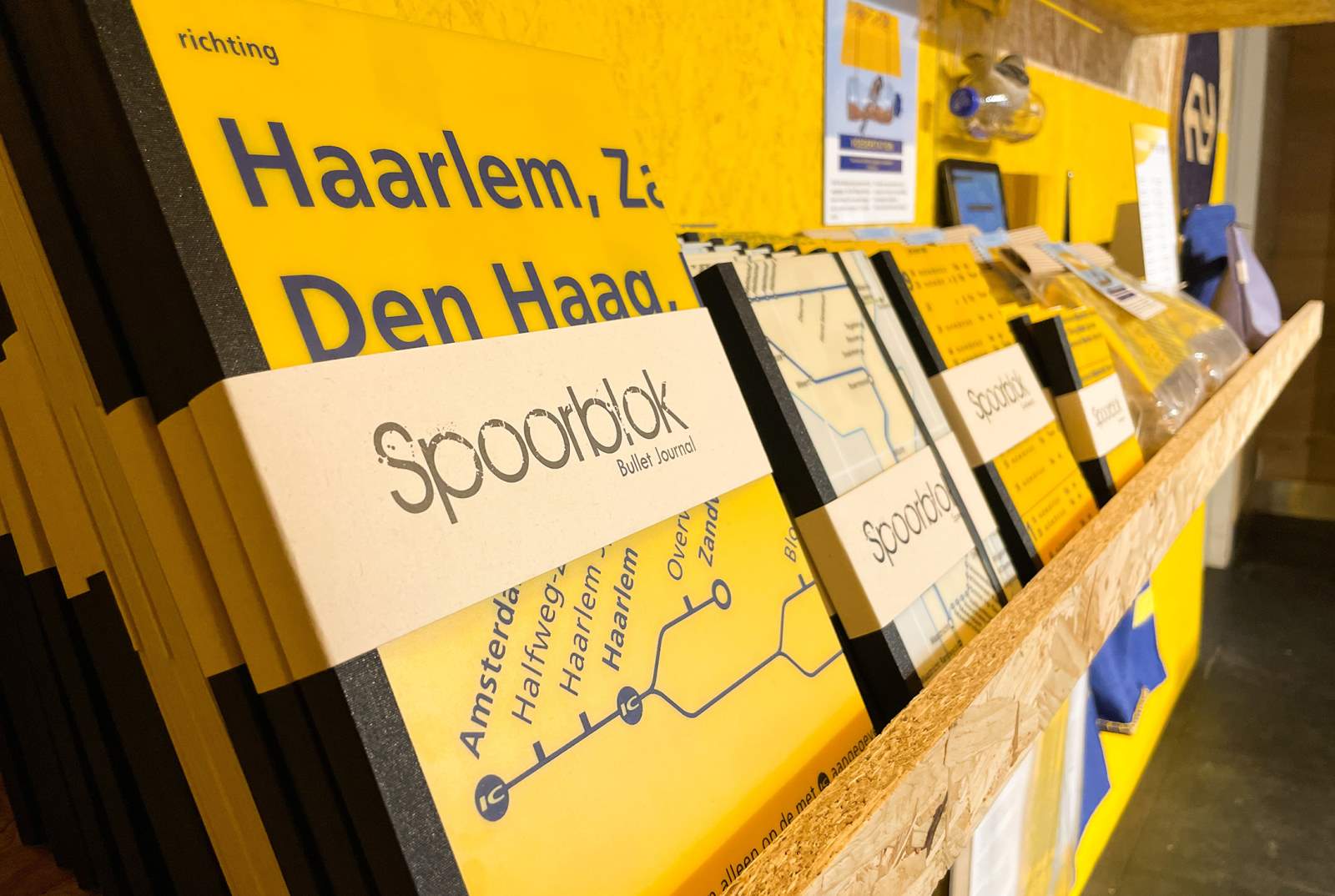Performance on sustainability

NS is the most prominent social provider of sustainable mobility and intends to retain that position. To that end we pursue a zero-emission, circular and green business strategy. In addition, we are working to make our product truly accessible and make NS a truly diverse and inclusive organisation. We aim to contribute to the Paris Agreement on Climate Change (CO2 reduction), the UN Convention on the Rights of Persons with Disabilities, the UN Sustainable Development Goals and the European Green Deal.
Public transport as a sustainable choice

NS provides climate-neutral transport options which include travel by train, OV-fiets public transport bicycles and train replacement bus services. By doing so, we enable passengers to make sustainable travel choices and contribute to the realisation of the ambitions laid down in the various climate agreements. Initiatives to help more passengers and colleagues make sustainable choices include the following:
-
supporting the Anders Reizen Coalition and encouraging employers to promote sustainable modes of transport among their employees;
-
adapting our own internal policies regarding air travel and banning all flights to destinations within a radius of 700 km;
-
abandoning the lease car policy for new colleagues and replacing the rest of our fleet with electric cars;
-
making it easier for passengers to book international train tickets.
Climate-neutral transport
NS is one of the largest electricity consumers in the Netherlands. We use 90% of that energy for running the trains and 10% for operating our stations, offices and workshops. Since 2017, we have provided climate-neutral rail transport by purchasing as much new green electricity from wind farms for our trains as we consume, over the year as a whole.
In addition, in 2019 we launched an initiative to make our train replacement bus services climate neutral using renewable fuels made from waste and residual flows. In 2021 we also managed to eliminate a small backlog that had arisen in 2019 following start-up problems and had not been fully compensated due to the huge impact of COVID-19 on touring car services.
Carbon emissions
At the start of the franchise in 2014, we emitted 77 kilotonnes (scope 1) and 487 kilotonnes (scope 2) of CO2. Largely by means of a green power purchasing policy, we have been able to reduce these emissions to zero in recent years. Since the start of the franchise we have cumulatively avoided 3.3 megatonnes of carbon emissions in this way. While we are proud of this achievement, we also aspire to reduce our emissions in scope 3. To realise this ambition, in 2021 NS signed up to the Science Based Targets initiative. The reduction targets we plan to submit within this context will be approved in 2023 at the latest.
The table below presents CO2 emissions in scope 1 and scope 2 caused by running trains and train replacement bus services per passenger-kilometre. The top part shows that our emissions are zero. We are able to report zero carbon emissions here thanks to the purchase of green power and renewable fuel. This is how we are able to provide climate neutral transport on an annual basis. The bottom part shows our emissions if all our trains run on grey electricity and our buses on fossil diesel. The increase visible in the bottom part for 2020 and 2021 relative to 2019 is caused by the fact that our trains carried fewer passengers.
2017 | 2018 | 2019 | 2020 | 2021 | |
Grams of CO2 emissions per passenger kilometre | 1 | 0.4 | 0.3 | 0 | 0 |
Including effect of purchase of renewable energy | |||||
Of which scope 1 (Fuel for buses) | 0.4 | 0.4 | 0.3 | 0 | 0 |
Of which scope 2 (Electricity for trains) | 0.5 | 0 | 0 | 0 | 0 |
Grams of CO2emissions per passenger kilometre. | 38.8 | 39.7 | 38.6 | 79.2 | 72.3 |
Excluding effect of purchase of renewable energy | |||||
Of which scope 1 (Fuel for buses) | 0.4 | 0.4 | 0.3 | 0.6 | 0.5 |
Of which scope 2 (Electricity for trains) | 38.4 | 39.3 | 38.2 | 78.5 | 71.9 |
Passenger kilometres in the Netherlands (in billions) | 18,277 | 18,535 | 18,896 | 8,258 | 8,630 |
We already purchase as much green power for our buildings as we consume. In addition, all the gas we have purchased since 2020 comes from green sources. This means that in 2021, NS buildings no longer generated any direct emissions (scope 1). Indirect carbon emissions (scope 2) as a result of the consumption of heat in our buildings amounted to 0.3 kilotonnes (2020: 0.4 kilotonnes).
Energy consumption
NS consumes electricity (1,144 GWh), HVO (hydrotreated vegetable oil) diesel (1.6 million litres), heat (20.6 TJ) and gas (5.9 million m3) for trains, buses, stations, workshops and offices. This works out at a total of 1,215 GWh of energy. With our thermal storage system, we generate the equivalent of 21 GWh of heat and cold at six stations.
At NS, we use the term ‘energy efficiency of traction’ to refer to the energy consumption of our trains per passenger-kilometre. The diagram below presents the energy efficiency of traction plus the total energy consumption of our trains (including train replacement bus services). Passenger numbers have not yet returned to their pre-COVID-19 levels. This is why we consumed more energy per passenger-kilometre in 2019. In 2021, energy consumption per passenger-kilometre was 122.6 Wh.